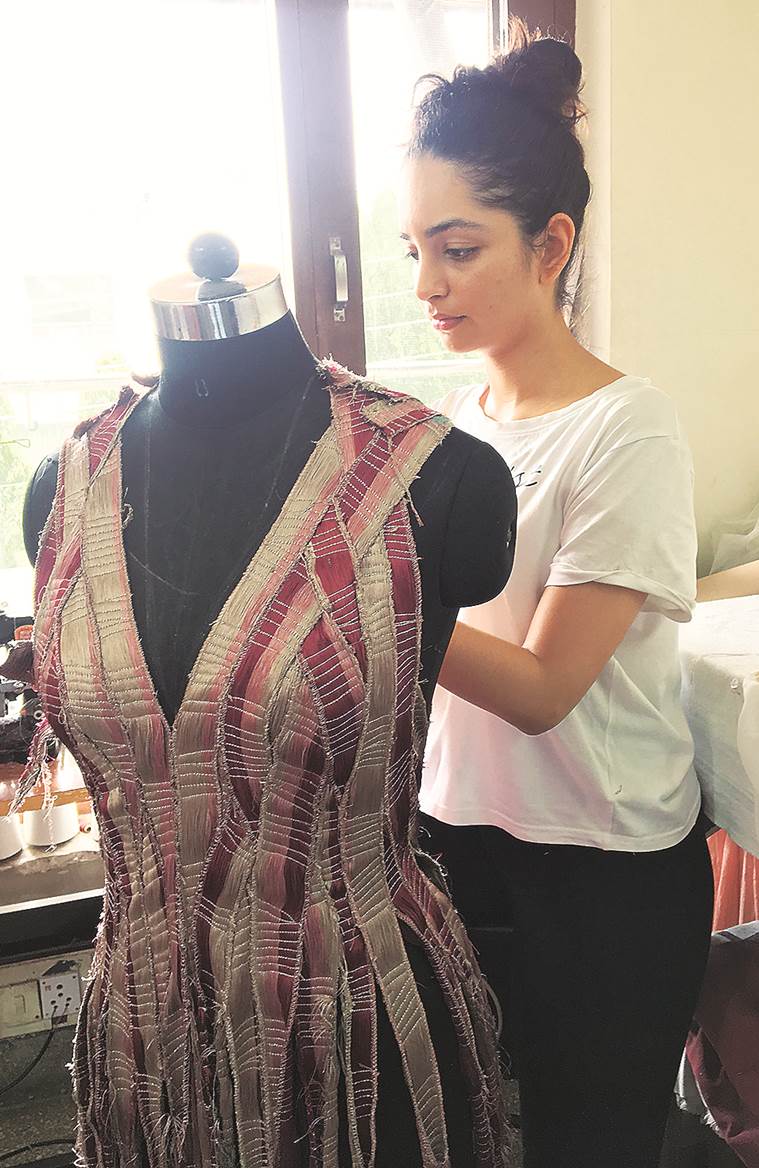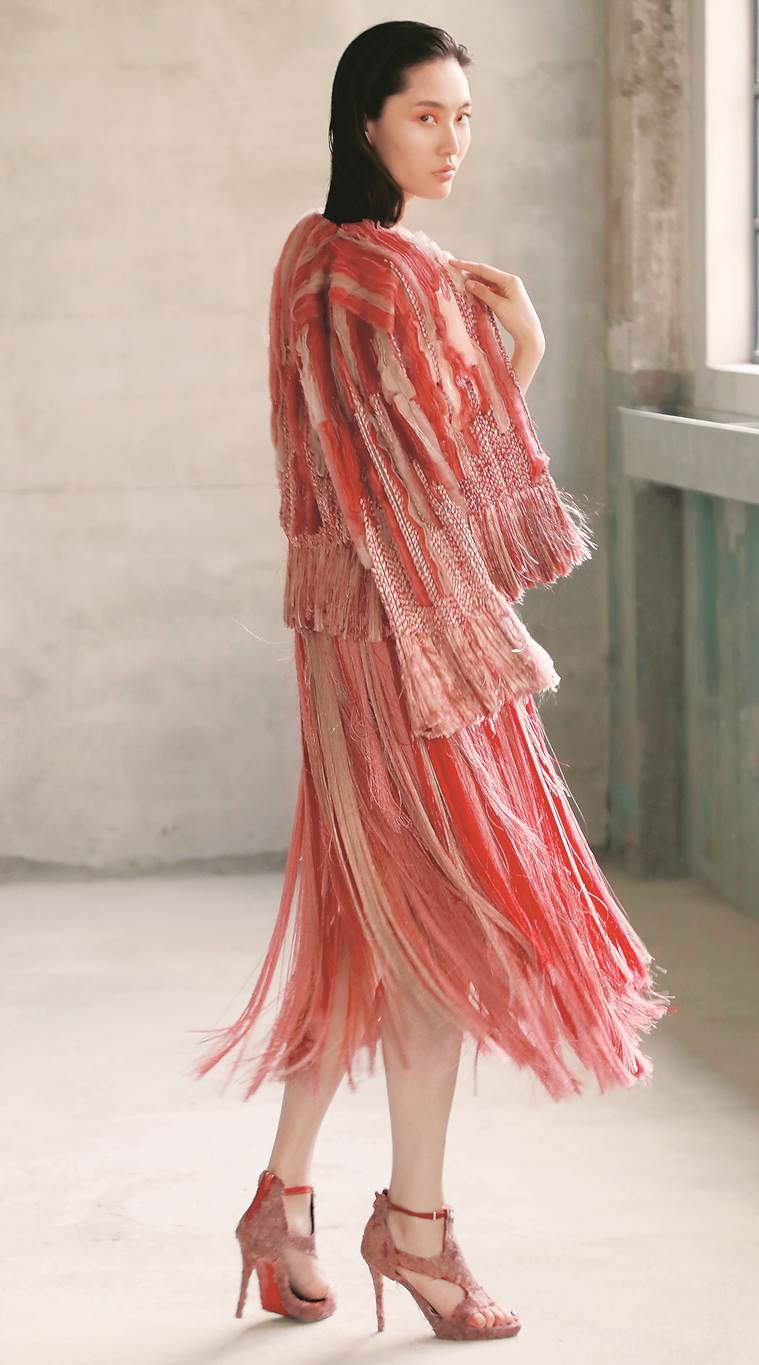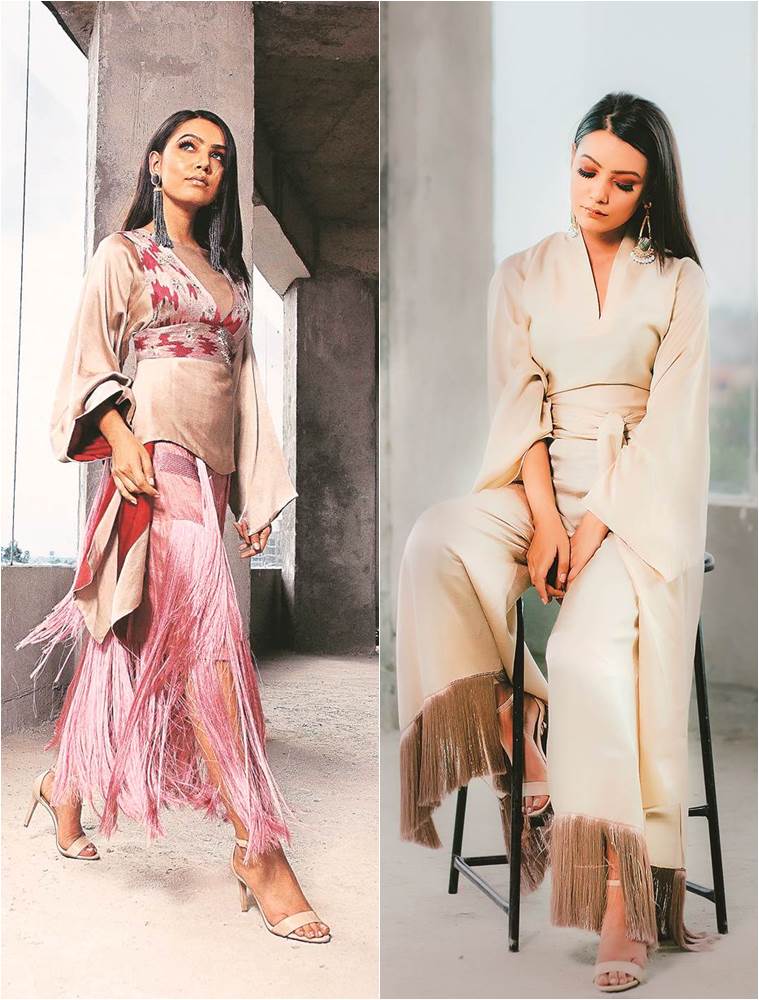A green stitch: Ludhiana designer Seerat Virdi at ‘Redress Design Award 2018’ final
Virdi is representing India at a sustainable fashion designing global platform in Hong Kong, where designers from across the world are competing through designs reusing and upcycling the waste of this industry.

Designer Seerat Virdi
Behind the glitz and glamour of the fashion industry across the globe is the growing concern over the waste that it generates. While many efforts are being made to recycle plastic waste, we are yet to realise the gravity of environmental degradation being caused by fashion industry waste.
Seerat Virdi, a fashion designer from Ludhiana in Punjab, is now representing India at a sustainable fashion designing global platform in Hong Kong, where designers from across the world are competing through designs reusing and upcycling the waste of this industry. Virdi has reached the grand finale and is among the top 11 finalists of the ‘Redress Design Award 2018’, currently being held in Hong Kong.
Ludhiana — a textile and hosiery industry hub of India — is a city that generates tons of textile waste each day and that is from where 26-year-old Virdi sources her “cut and sew waste”, commonly called katran (leftovers of fabrics and threads usually discarded by boutiques and wholesale garments manufacturers after completing a design) to create eco-friendly designs made using sustainable design techniques such as zero waste pattern cutting, reconstruction and upcycling.
Organised by environmental NGO, Redress, the Redress Design Award is the world’s largest sustainable fashion design competition where finalists from 11 countries will present their sustainable designs created entirely from waste textiles at a grand finale fashion show in Hong Kong on September 6. The NGO is working to reduce textile waste in the fashion industry and bring an environmental friendly change. Of 30 semi-finalists, Virdi is the only Indian among the 11 selected for finals. The other 10 finalists are from Hong Kong, Japan, Denmark, France, Israel, Philippines, Australia, Taiwan, Spain and the UK.
A hub of textile and hosiery industry, readymade garment manufacturing units and other clothing brands, Ludhiana was a blessing in disguise for Virdi. She made many visits to wholesale markets, shops, boutiques and other places to collect their dumped and unwanted materials and then started working on the initial submissions for the competition.
“What really started this was a documentary on this subject, The True Cost, which I saw and it really made me think. We had to make intensive submission of our designs online for this contest, explaining how waste has been recycled to create the designs. I have sourced waste from the wholesale markets of Ludhiana, where manufacturing units and textiles dump what they don’t need. Then I visited many boutiques to ask for katran. I have even used my mother’s old saris. From organza, silk, threads, fabrics to everything that I could manage, I have created designs from them. I also went to shopkeepers and asked for thaan (fabric rolls) which were almost over, called ‘end of roll fabric’ in sustainable designing. Otherwise they would have only ended up in garbage dumps increasing pressure on landfills,” explains Virdi.
For the grand finale, Virdi’s five sustainable designs have been selected. Interestingly, they are in 10 pieces which can be attached and detached to increase usability. Apart from this contest in Hong Kong, her two sustainable works were also selected for the Lakme Fashion Week Incubation Programme 2018.
“For the grand finale, one of my works includes a jacket made by deconstructing an older piece of clothing. Bottom of the dress are threads let loose to create sinuous flow. Two of my outfits selected for Lakme Fashion Week are from zero-waste collection. The first one, a tunic-bodice-skirt, has bodice made from cut and sew waste. Skirt is made from raw silk and tunic is reversible, which can be worn in different ways. The second one, a tunic-palazzo-jacket, has a palazzo made from upcycled threads used for tassel and reversible tunic.”
Virdi, who also runs her own brand Miesu, said that she aims to make her brand completely dependable on sustainable designing and clothing. “I launched it last year but not as a sustainable clothing brand. But after I realised that how much waste this industry produces on daily basis and how badly it is affecting our environment, I now aim to make it completely sustainable. Currently, the fashion designing industry in India is largely ignorant about this damaging aspect of our work which is putting a lot of pressure on our planet. Even the biggest brands in the world do not sell every single piece of their works and waste generated by this industry is enormous,” says Virdi, who holds a bachelor’s degree in fashion design from Pearl Academy, Delhi.






















 One of the entries for Redress Design Award at Hong Kong
One of the entries for Redress Design Award at Hong Kong Two of Virdi’s designs selected for Lakme Fashion Week Incubation Programme 2018
Two of Virdi’s designs selected for Lakme Fashion Week Incubation Programme 2018
No hay comentarios:
Publicar un comentario